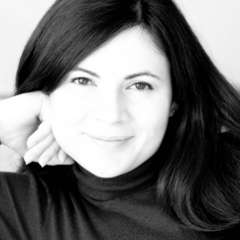There was great anticipation in the Irish press for Roddy Doyle's adaptation of the libretto from Mozart's Don Giovanni. Choosing the popular author was a smart move from Opera Theatre Company in order to try and attract new audience to opera; but those who know by heart and love the original Italian version of possibly the greatest opera ever written were probably less than thrilled at the idea of an English adaptation setting the scene in contemporary Dublin, and even less so at the idea of a translation by a novelist.
The opening of the scene in a gym-spa with all of the cast sitting in a circle in white bathrobes during the overture would have made you fear the worst for the evening; but as soon as the singing started with the first of Leporello’s arias (“Notte e giorno faticar”), sung by John Molloy, that feeling was gone, as was the fear of the text losing in translation, or of the English spoiling the music. Yes, “I want to be the big shot” doesn’t quite sound and flow harmoniously like “Voglio far il gentiluomo”, but the audience probably felt that this didn’t really matter, or it wasn’t so terribly important once the beautiful music was there and the singing measured up to the role. As for the actual translation, ‘big shot’ was here a suitably smart adaptation, in the context, of ‘nobleman’. This just gives you a sample of the many happy moments in Doyle’s translation, ingenious at times (‘homeopathic’ substituting ‘natural’ for the bel rimedio, anyone?), which makes you forget some less happy ones.
As for Doyle's famously typical use of the vernacular, this wasn’t a real shocker because of its relatively infrequent occurrence, and it wasn’t a shocker per se, but rather for the philological inaccuracy with which it was once used in the opera: while a profanity or two proffered by Leporello weren’t out of place, and possibly even added to an authentic characterisation of the servant-sidekick, the epithet of “bastard” (referring to Don Giovanni) in the graceful and virtuous Donna Anna’s mouth rang jarringly untrue, and acted as a distracting stain on the beautiful aria “Or sai chi l’onore” (“You know now the bastard”, sic!).
John Molloy played a wonderful, quite memorable Leporello, and his performance was consistently brilliant throughout the evening. His basso buffo was a perfect match for the part and he effortlessly reached the sweet spot where great voice, accurate execution and a relevant personal interpretation meet to create the magic of opera. He was flawless and he stole the show.
Tara Erraught enchanted the audience by making ample display of her luscious and powerful mezzo-soprano voice, perhaps in a role a bit challenging for her. The most memorable interpretations of Donna Elvira are in fact, traditionally, from sopranos, who with their high notes effectively convey the despair of the woman seduced and abandoned. There was the feeling that Erraught had not lived enough in the part and did not make it completely her own, with a first act less convincing than the second one: at times it was almost as Rosina was singing Donna Elvira, injecting in comic nuances that don’t belong to this character. But she managed a quite nice “Mi tradì quell'alma ingrata”, although here again the constricted translation did not help the singing.
Máire Flavin was a very convincing and perfectly cast Donna Anna, both visually and vocally, eclipsing any minor difficulty in the lower notes with a beautiful scenic presence, elegant poise and passionate interpretation. Brendan Collins was a very good Masetto, while Alexander Sprague and Daire Halpin both stood out equally for faithfulness to the original. Sprague as Don Ottavio had a lovely tenore di grazia voice, which reminded a lot of Alfredo Kraus. Halpin was a delightful Zerlina, whose not huge voice was widely compensated by her perfect execution. David Kempster’s Don Giovanni could have possibly been more incisive, while Jonathan May was a suitably scary Commendatore, even if not helped much by the costume: when he entered the scene, a bit abruptly for somebody coming from the afterlife, you wonder for a while if he is an alien, while you were expecting the ‘stone guest’. Exception made for Donna Anna, in fact, costumes and set were not one of the highlights of the show.
But above all raised the sublime Mozart’s music: conductor Fergus Sheil and the RTÉ Concert Orchestra did it again, blurring any imperfection in the production in what turned out to be a great evening of entertainment.


